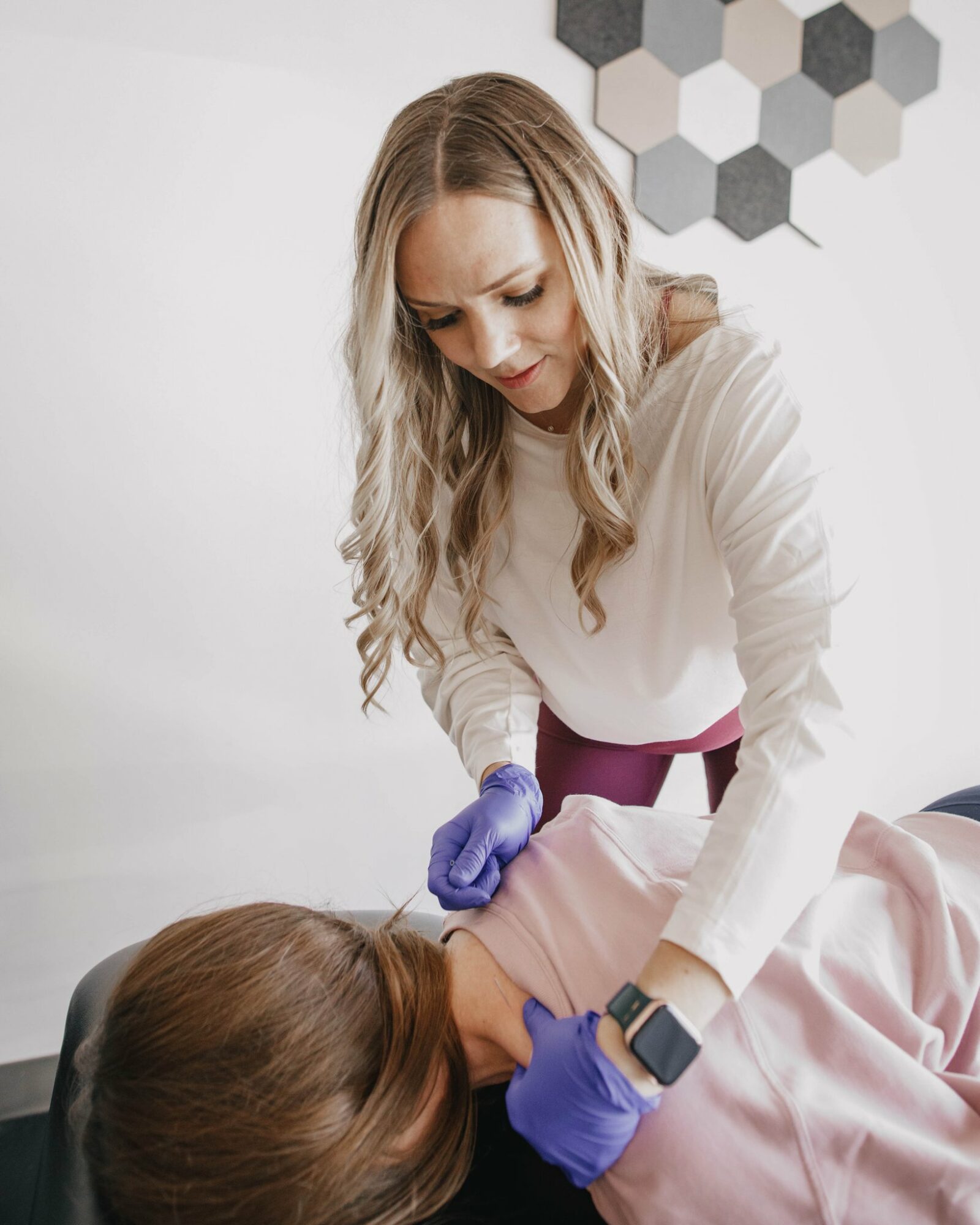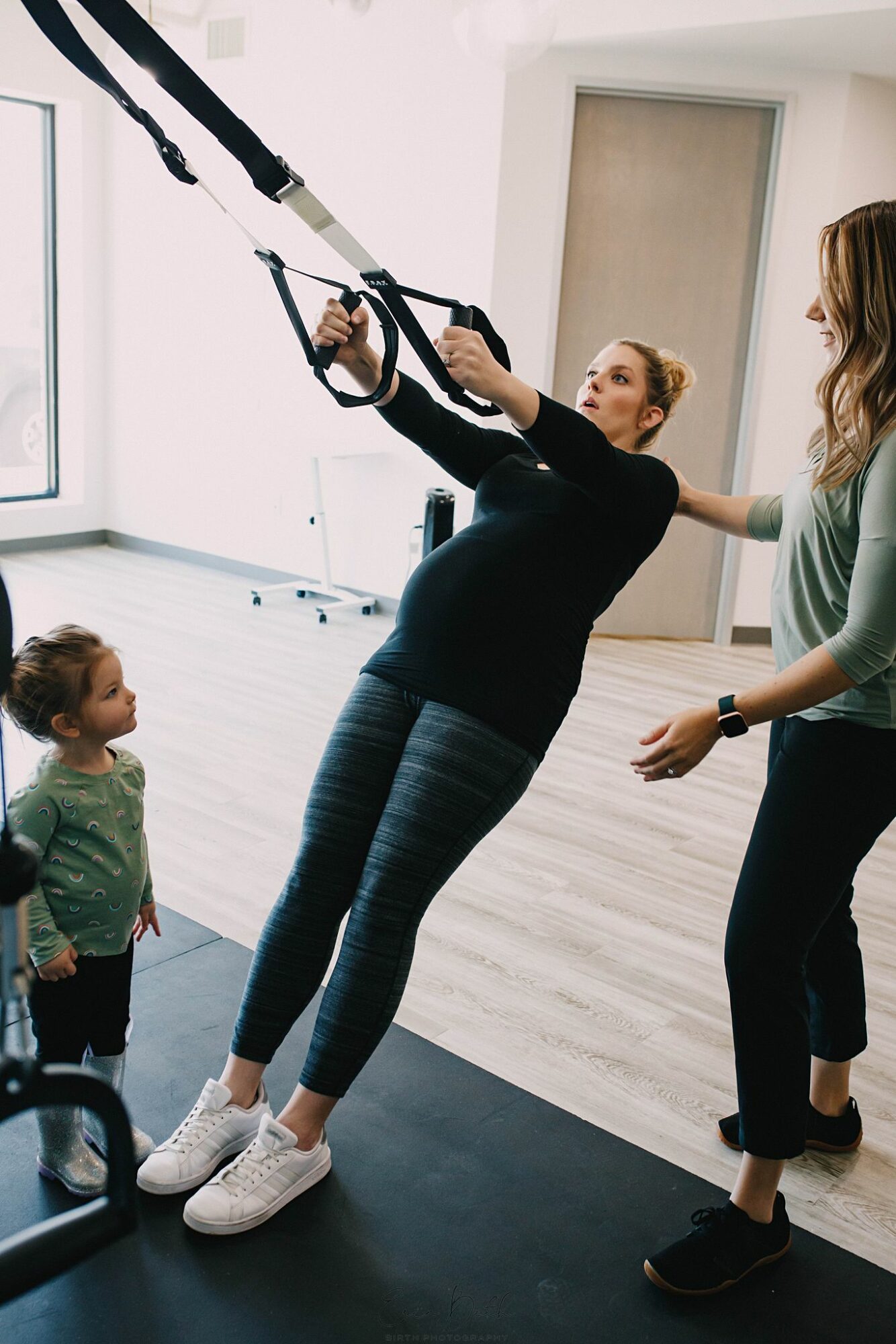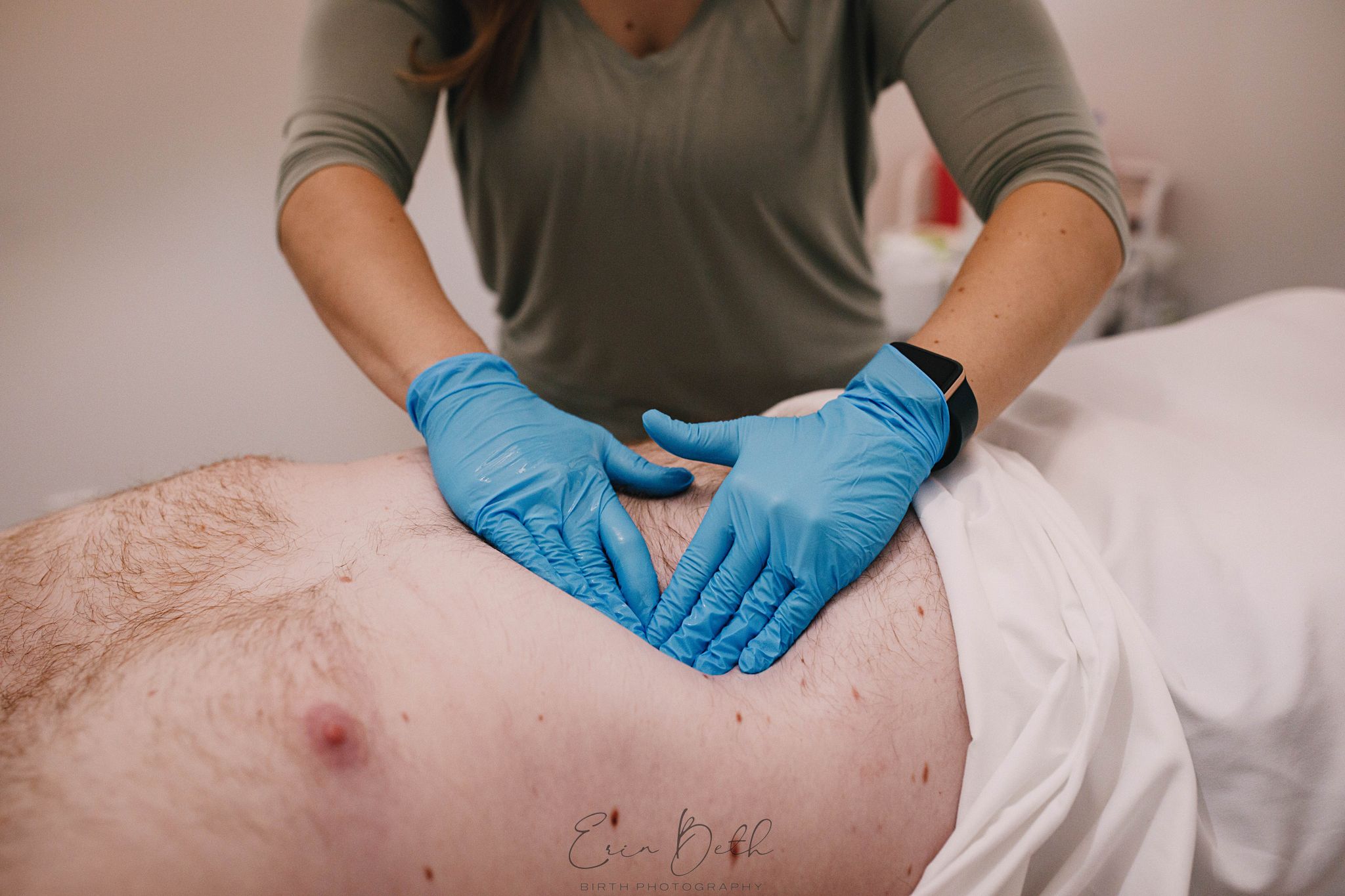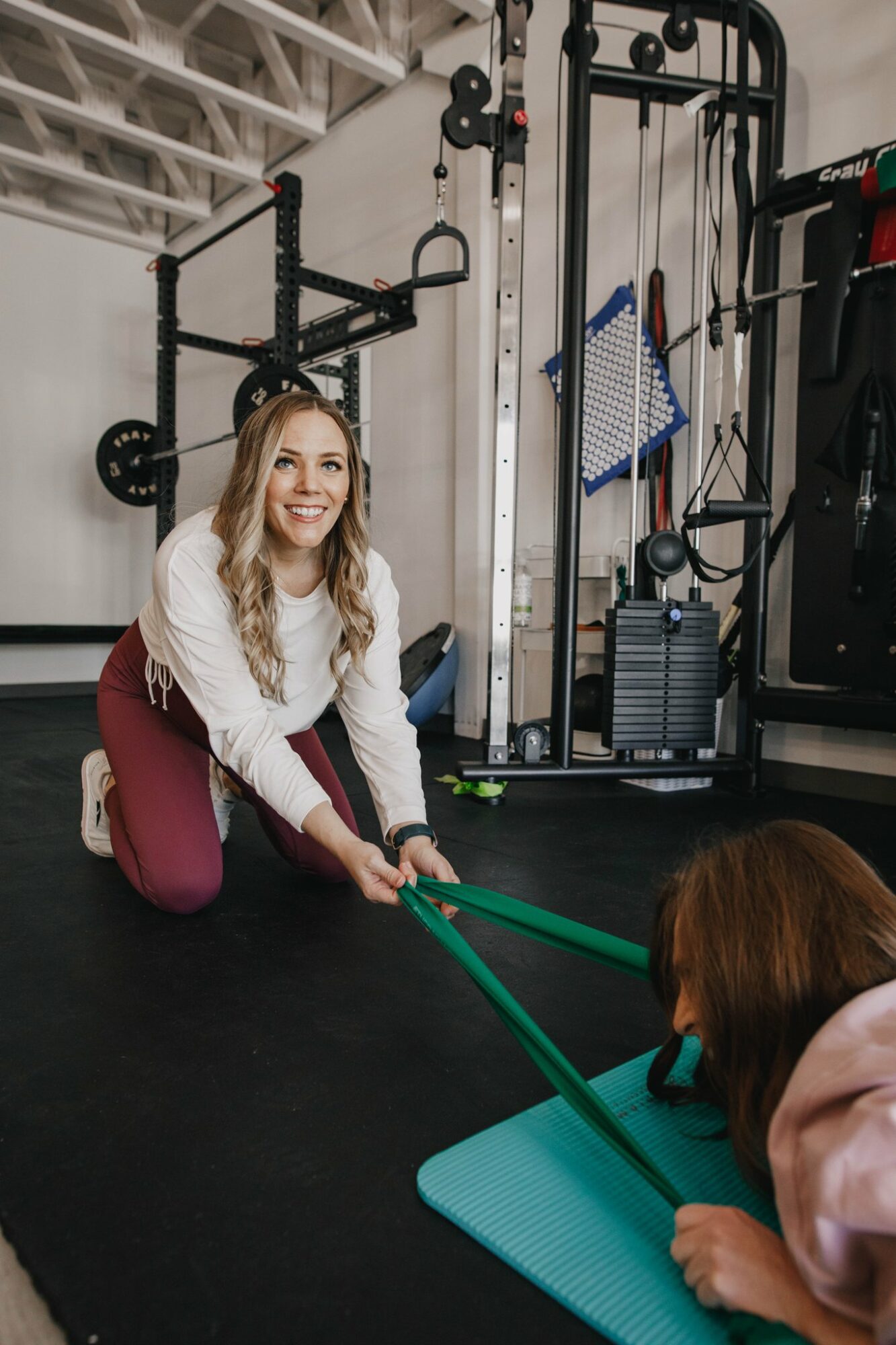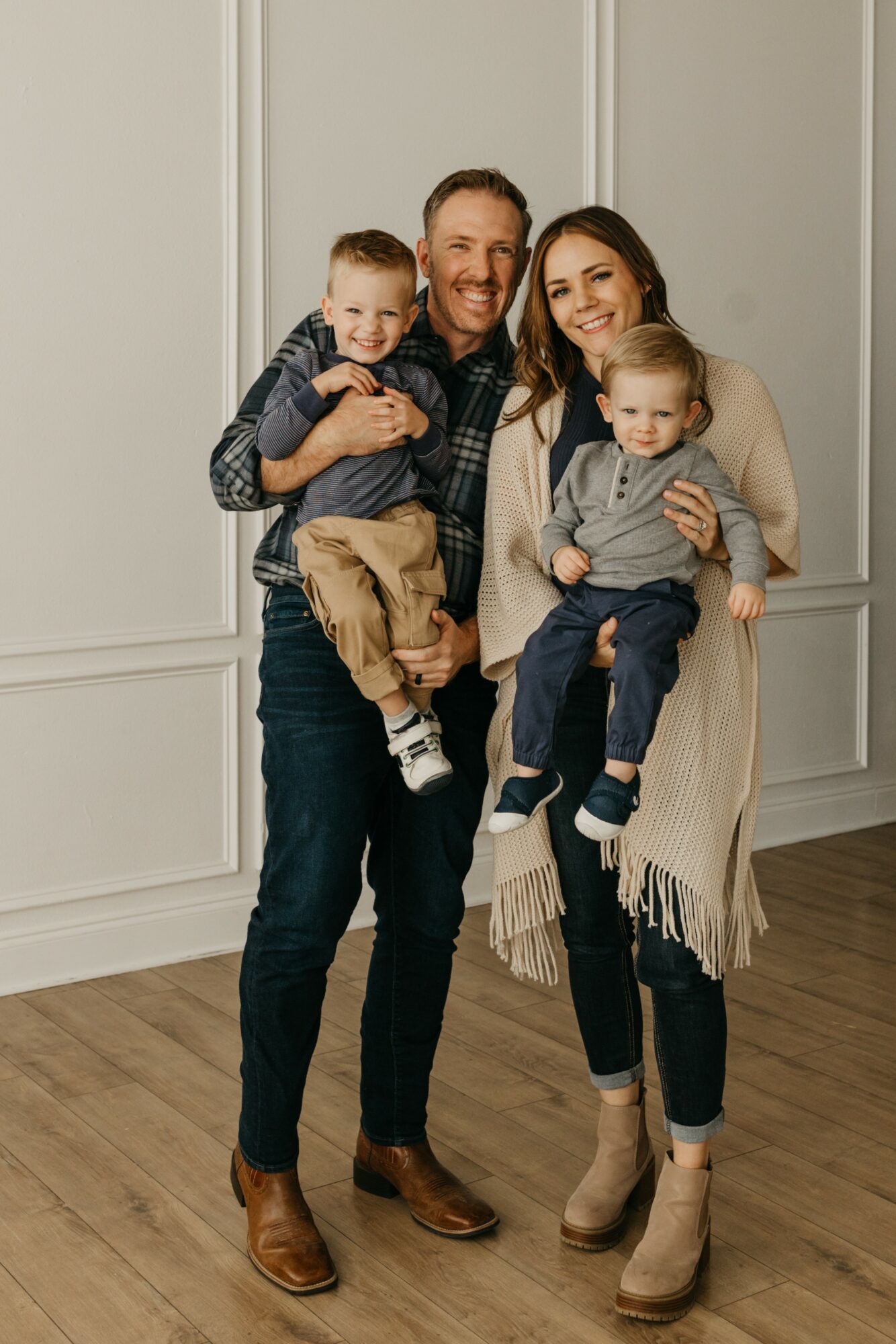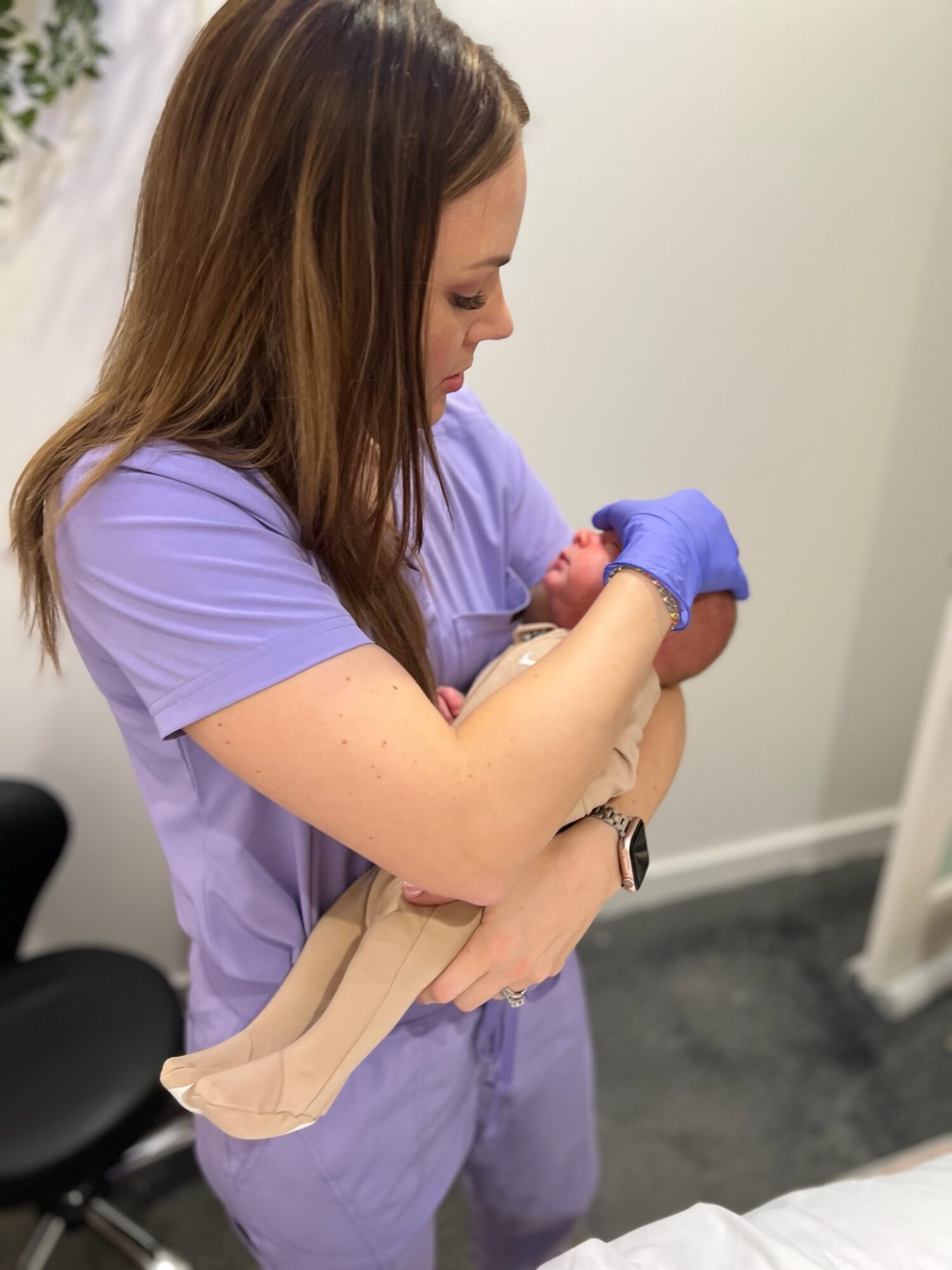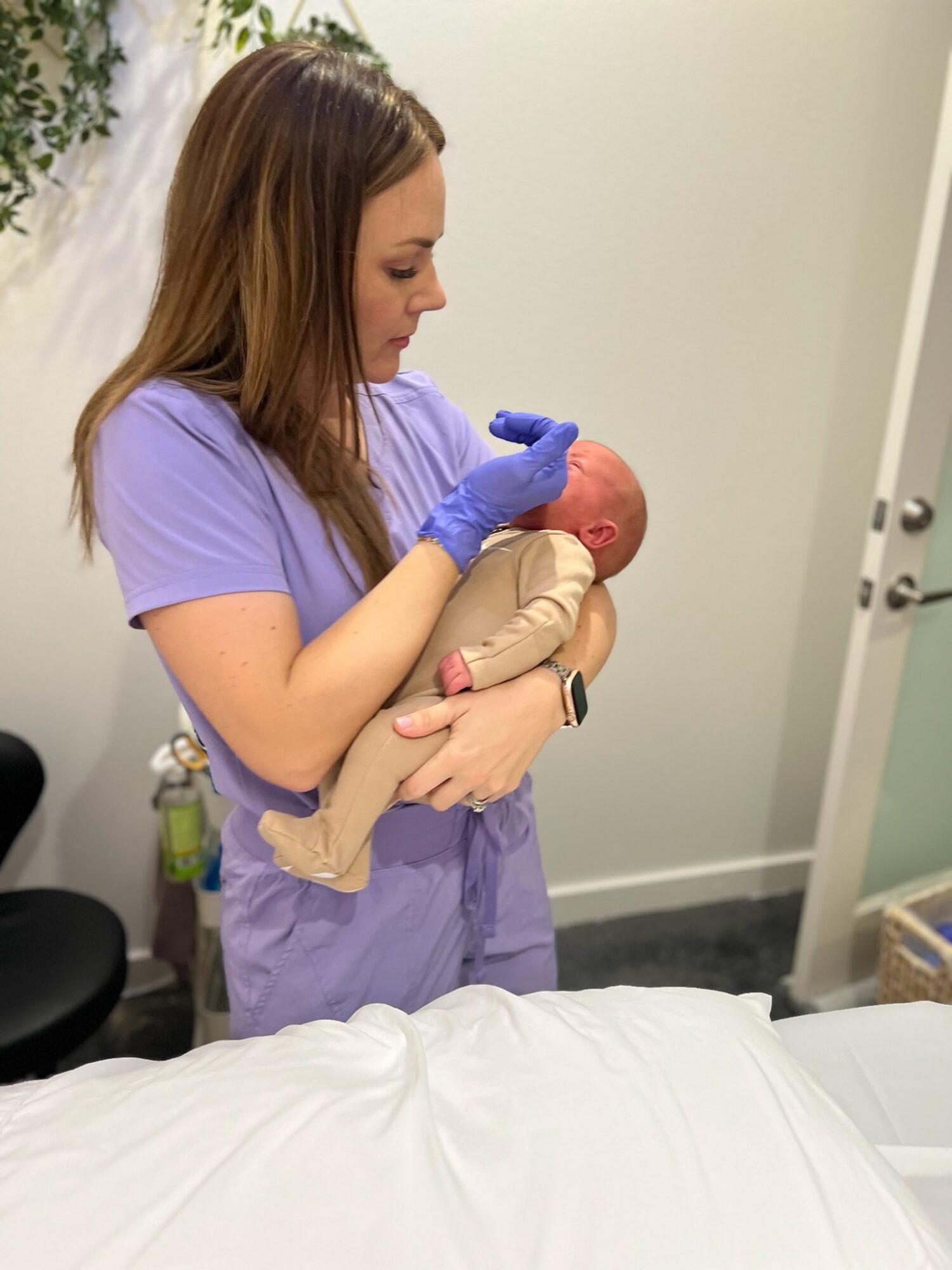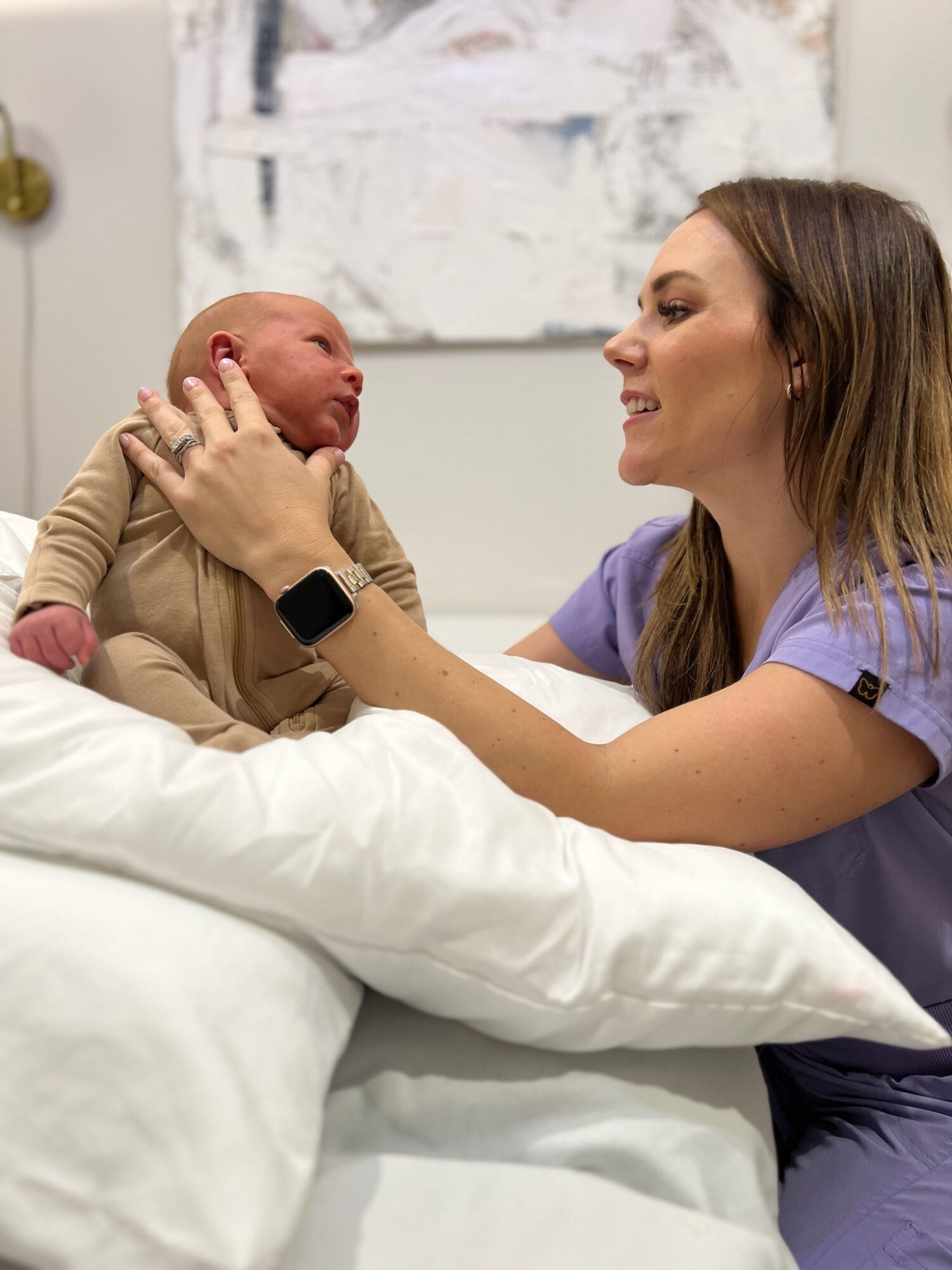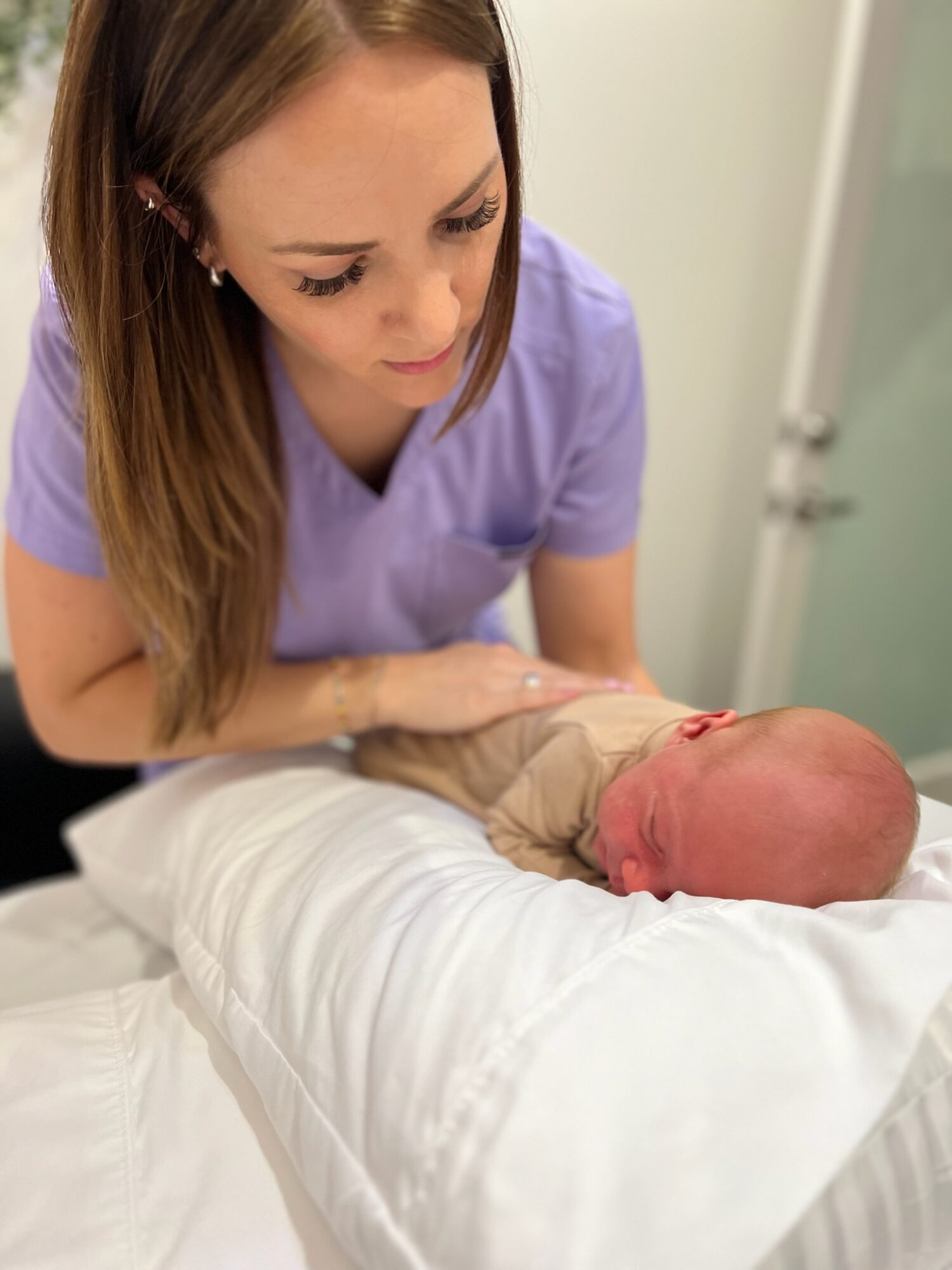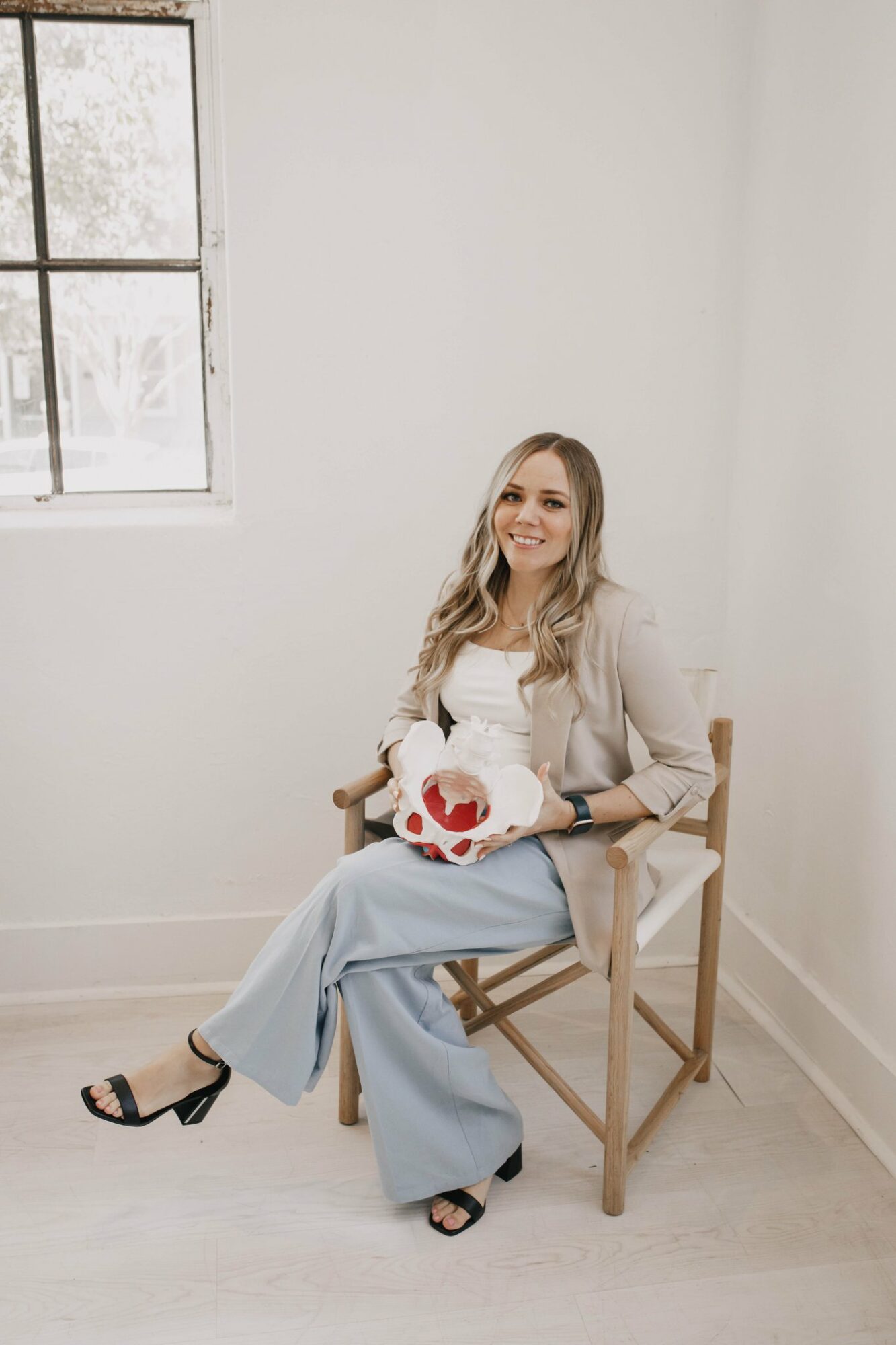

Today we’d like to introduce you to Hailey Miller
Alright, so thank you so much for sharing your story and insight with our readers. To kick things off, can you tell us a bit about how you got started?
I’ve always been fascinated by the human body—its resilience, its adaptability, and its ability to heal. My journey started in the fitness industry, where I worked as a personal trainer and fitness director for 10 years. I loved pushing the body’s limits through movement, but over time, I felt like something was missing. I wanted to go beyond fitness and help people in a more holistic way—addressing pain, dysfunction, and overall well-being at a deeper level. That led me to pursue a Doctorate in Physical Therapy at the University of North Texas Health Science Center.
It was during my PT program that I was introduced to the pelvic health specialty. My husband, who worked as a pharmaceutical rep in the GI field, encouraged me to explore it further. The more I learned, the more I realized how overlooked and under-discussed pelvic health is—not just by patients, but even by healthcare providers. I found that I was comfortable talking about the ‘uncomfortable’ and passionate about normalizing these conversations. That’s when I knew I had found my calling.
I started my career in home health pediatrics, working with babies after their NICU stays, but I missed working with adults, so I transitioned into pelvic health therapy. Experiencing pregnancy and postpartum myself alongside my patients made me realize just how little support and education exists for women during this stage of life.
That realization led me to co-create Move Through Motherhood, a program designed to fill the gaps in maternal care. Alongside my colleagues, Dr. Megan and Dr. Ally, we built a comprehensive resource for women navigating pregnancy, labor, postpartum, and even loss. The program provides education, movement-based recovery, and hands-on strategies to help women feel strong, prepared, and supported at every stage of their journey. We address topics that are often overlooked—like pelvic health, core recovery, labor preparation, and even emotional healing after miscarriage or loss—because every stage of motherhood deserves care and attention.
Today, I work at Genesis PT & Wellness in Willow Park, TX, one of several locations across DFW. We offer pelvic health therapy for women, men, and children, both in-person and virtually, making high-quality care accessible to more people.
I specialize in pelvic health therapy, treating women, men, children, and infants. My approach is holistic—I look at how the jaw, neck, nervous system, and daily habits all influence the pelvic floor. I use gentle hands-on techniques like craniosacral fascial therapy and visceral mobilization to release tension, improve mobility, and regulate the body.
For babies, these treatments help with feeding difficulties, colic, and sleep issues. For moms, they help with postpartum recovery, pain relief, and overall wellness. Even my pregnant patients say they look forward to treatments because they feel better and have their best poops afterward!
Beyond treating patients, I’m passionate about educating healthcare providers and the public. My mission is to normalize pelvic health, break the stigma, and help people take control of their well-being.
I love giving people answers and solutions they didn’t know were possible. Whether it’s a mom struggling with postpartum pain, a baby having trouble feeding, or a man dealing with chronic pelvic dysfunction, I love helping them feel better and live healthier lives.
Pelvic health isn’t just about muscles—it impacts digestion, circulation, posture, sexual health, and even emotional well-being. When we address it, everything improves. My work is about helping people move better, feel better, and yes—poop better!
I’m focused on expanding education and awareness—both for patients, healthcare providers, and the general public. Too many people don’t have access to the right information or treatment. My goal is to teach more professionals how to provide better care and help families understand the early signs of dysfunction so they can take action before small issues become big problems. If we start off with the right habits and information, we can avoid a lot of dysfunction later in life.
I also want to continue growing my practice at Genesis PT & Wellness and reaching more people through virtual care and educational programs. Everyone deserves access to good pelvic health care, and I want to make that happen.
Would you say it’s been a smooth road, and if not what are some of the biggest challenges you’ve faced along the way?
No way. Like most meaningful journeys, mine has had plenty of challenges, setbacks, and unexpected twists—but each one has shaped me into the provider I am today and helped me to connect with a lot of my patients.
One of the biggest struggles was navigating my career growth while going through pregnancy and postpartum myself. Both of my pregnancies were incredibly challenging—I struggled with severe nerve pain in the front of my pelvis and thigh numbness on one side, making it difficult to walk or even stand for longer than 5-10 minutes at a time during my first pregnancy. As a movement specialist, it was frustrating to feel so physically limited in my own body.
By my second pregnancy, I was able to manage my symptoms better through regular chiropractic care, physical therapy, and exercise, which made a huge difference. But those experiences gave me a whole new level of understanding for what many of my patients go through. It reinforced how little education and support exist for pregnancy-related pain and why so many women are told to just “deal with it” rather than being given real solutions.
Returning to work as a new mom was one of the hardest things I’ve ever done. The exhaustion, sleep deprivation, and emotional toll of balancing work and motherhood made it incredibly difficult. On top of that, breastfeeding and pumping were major struggles, especially because both of my babies had oral ties (tethers) that required revisions. I experienced firsthand the frustration of navigating infant feeding difficulties—the pain, the latch issues, the sleepless nights, and the overwhelming feeling of not knowing if I was doing the right thing.
Through this, I gained a deeper understanding of infant tension, oral restrictions, and the challenges many parents face with feeding. It wasn’t just something I had learned in school—I lived it, and that gave me a new level of empathy and expertise. This frustration fueled my desire to educate and empower parents, and I now use my experience to help patients navigate oral ties, infant tension, and bodywork to improve feeding, sleep, and overall function for both moms and babies.
Physically, postpartum recovery was also a major challenge for me. I had quick labors, and after my first baby, I experienced a lot of prolapse symptoms that only got better after physical therapy and working on my feet! My second birth took an unexpected turn and ended in an emergency C-section because my son flipped during labor and came out booty-first (frank breech). The recovery from that was extremely difficult, especially since I had already experienced significant pelvic changes from my first pregnancy.
Both pregnancies left me with hernias and diastasis recti (DRA), which were incredibly difficult to rehab. After years of working on it through exercises and PT, I ultimately had to have surgery to repair both my hernias and diastasis recti. The recovery from that has been another journey in itself, and I’m still working on rebuilding strength, mobility, and function.
Going through all of this deepened my understanding of postpartum rehab and pelvic health in ways I never expected. It made me even more passionate about helping women navigate their postpartum journey with the right tools, support, and education—because no one should feel lost in their recovery.
Another challenge has been bringing awareness to pelvic health and educating people on why it matters. Many people don’t realize that pelvic health is more than just postpartum recovery—it impacts men, children, athletes, and even people dealing with chronic pain or digestive issues. Breaking the stigma around these topics and helping people feel comfortable discussing their health has been a journey in itself.
Professionally, one of my biggest challenges was working in a practice that accepted insurance. While insurance-based care works for some, it limited me from treating holistically and developing a plan of care that truly fits a patient’s lifestyle and long-term goals. A typical insurance-approved plan is once a week for 6-8 weeks, but we know that real change takes time—we’re dealing with healing, habit changes, strength, and mobility.
If insurance dictates how long and what we can treat, we can’t truly help people in the way they need. The goal isn’t just short-term improvement—it’s lasting results. We want to give people the tools to maintain their progress, not just have them come back later with the same issues, which ends up costing more in the long run. Plus, if someone hasn’t met their deductible, they’re already paying high co-pays—which are often just as much as seeing an out-of-network provider who can actually provide comprehensive care.
This is why I love where I practice now. At Genesis PT & Wellness, we have the freedom to treat holistically—to use our full skill set and critical thinking to address every piece of the puzzle, not just what insurance allows. It’s magical to be able to treat the whole person, not just a diagnosis, and truly help people reach their goals. I wouldn’t want anything less for my patients, and I’m so grateful to practice in a setting that allows me to provide the care people deserve.
While the road hasn’t been smooth, every challenge has reinforced my mission: to bring awareness, education, and better care to as many people as possible. It’s what led me to co-create Move Through Motherhood, work at Genesis PT & Wellness, and continue expanding my impact through teaching, mentoring, and virtual education. The struggles have only fueled my passion to make pelvic health and whole-body wellness more accessible and understood.
Thanks – so what else should our readers know about your work and what you’re currently focused on?
I am a pelvic health physical therapist at Genesis PT & Wellness in Willow Park, TX, where we specialize in holistic, whole-body treatment for men, women, and children. We treat everything from pregnancy and postpartum recovery to chronic pelvic pain, orthopedic dysfunctions, and even infant feeding challenges and motor milestones.
I joke that I’m the “hole doctor” because I treat holistically and can treat all the holes—meaning I work with the pelvic floor, jaw, and neck, which are all connected through fascial and nervous system pathways. Your pelvic floor and jaw are deeply linked, and when we clench our jaw or experience stress and anxiety, our pelvic floor also tenses. Many people don’t realize that their pelvic floor symptoms—like pain, incontinence, prolapse, or even constipation—often stem from other dysfunctions in the body (head to toe). The pelvic floor isn’t always the problem—it’s often the victim of another issue.
I also specialize in treating patients with Ehlers-Danlos Syndrome (EDS) and other complex or “strange” symptoms. Having EDS myself, I understand how difficult it can be to find providers who truly understand hypermobility, chronic pain, joint instability, and nervous system dysregulation. Many people with EDS or other connective tissue disorders experience pelvic floor dysfunction, chronic pain, and symptoms that don’t always fit into a traditional medical model. Because of my personal and professional experience, I take a highly individualized approach, focusing on stabilization, nervous system regulation, fascial techniques, and movement strategies that actually work for hypermobile bodies.
What I’m Most Known For:
Holistic Pelvic Health: I look beyond just the pelvic floor and treat the jaw, neck, feet, nervous system, digestion, and even stress levels to help my patients fully heal.
Specializing in EDS & Complex Cases: I work with patients who have Ehlers-Danlos Syndrome, dysautonomia, mast cell issues, and other complex conditions that often get overlooked or misunderstood.
Infant & Pediatric Care: I work with babies struggling with feeding difficulties, oral ties, tension, colic, reflux, and sleep issues, helping them breastfeed, bottle-feed, sleep, and regulate better.
Pregnancy & Postpartum Recovery: I help women navigate pregnancy pain, prepare for labor, and recover from vaginal or C-section births, including prolapse, diastasis recti, and postpartum hernia rehab.
“Weird Aches & Pains No One Can Figure Out” Specialist: Many of my patients come to me after seeing multiple providers with no answers. Whether it’s a mystery pain, persistent tension, or a symptom that keeps coming back, I love digging deep to find the root cause and providing real solutions.
What I’m Most Proud Of:
I’m incredibly proud of co-creating Move Through Motherhood, a program designed to fill the gaps in maternal care by providing education and movement-based recovery for pregnancy, labor, postpartum, and even loss. This program gives women the knowledge and tools they need to feel strong, supported, and confident in their bodies at every stage of motherhood.
I’m also proud of the impact I’ve had in normalizing pelvic health conversations—helping people feel comfortable talking about the “uncomfortable” and empowering them to take control of their well-being.
What Sets Me Apart from Others?
I’ve Lived Through It – I have personally experienced pregnancy and birth complications, postpartum recovery challenges, prolapse, diastasis recti, hernias, and Ehlers-Danlos Syndrome. My care comes from both clinical expertise and personal experience, which helps me connect with my patients on a deeper level.
I Treat the Whole Person, Not Just the Symptoms – The pelvic floor is never the only issue. I assess how posture, breathing, daily habits, stress, nutrition, and movement patterns all play a role in pain and dysfunction.
I Use Unique, Hands-On Techniques – I combine craniosacral fascial therapy, visceral mobilization, nervous system regulation, and myofascial release to create customized, effective treatment plans.
I Prioritize Lasting Results Over Quick Fixes – My goal isn’t just to get rid of symptoms temporarily—it’s to help my patients fully heal, understand their bodies better, and feel empowered to maintain their progress for life.
At the end of the day, my work is about helping people move better, feel better, and truly enjoy life without limitations. And poop better too!
Do you have any advice for those looking to network or find a mentor?
The best way to network and find a mentor is just to be yourself and build real relationships instead of worrying about making the “right” professional connections. People can tell when you’re being genuine vs. just trying to get something from them, so focus on actually getting to know people, having real conversations, and seeing where it leads.
For me, networking has worked best when I treat it like making friends rather than a business transaction. I always ask, “What do you LOVE about your work?” or “Who is your ideal client/patient?” instead of just pushing what I do. People love talking about themselves, and it gives you a way to connect on a deeper level.
As far as networking:
Keep it casual – I love hosting happy hours or community events where people can actually relax and talk instead of standing around awkwardly at a formal networking event. It makes it easier to find common ground and actually enjoy the process.
Have real conversations – Forget the typical elevator pitch—just talk to people like a normal human. Find ways to relate to them, whether it’s through work, hobbies, or even just a shared love for good food or coffee. The best connections happen when you’re not forcing it.
Do NOT overcommit – It’s easy to say yes to every event, coffee meetup, or referral group, but burnout is real. I’ve learned to be intentional about where I put my time and energy, so I can actually enjoy networking instead of feeling drained by it.
Finding a Mentor:
The best advice? Just ask! If there’s someone you look up to, reach out and see if they’d be open to chatting, grabbing coffee, or letting you shadow them. People are usually happy to share their knowledge—you just have to ask.
Start small – Instead of asking someone to be your official mentor, just invite them to coffee or ask for quick advice. It’s way less intimidating and more likely to lead to an ongoing relationship.
Find someone you genuinely want to learn from – A mentor doesn’t have to be some big-name expert; it can be anyone who’s doing what you want to do and doing it well.
Learn by watching – Some of my best “mentors” probably didn’t even realize they were mentoring me. I just watched, listened, and learned by seeing how they handled things.
Networking and mentorship should feel natural and fun. If you show up as yourself, focus on making real connections, and stay open to learning, the right people will naturally come into your circle. I have met so many amazing people this way!
Pricing:
- 125-285 per visit for 30-90 minutes
Contact Info:
- Website: https://www.genesisptwellness.com
- Instagram: @dr_haileymiller_pelvicpt
- Other: https://www.genesisptwellness.com/movethroughmotherhood
